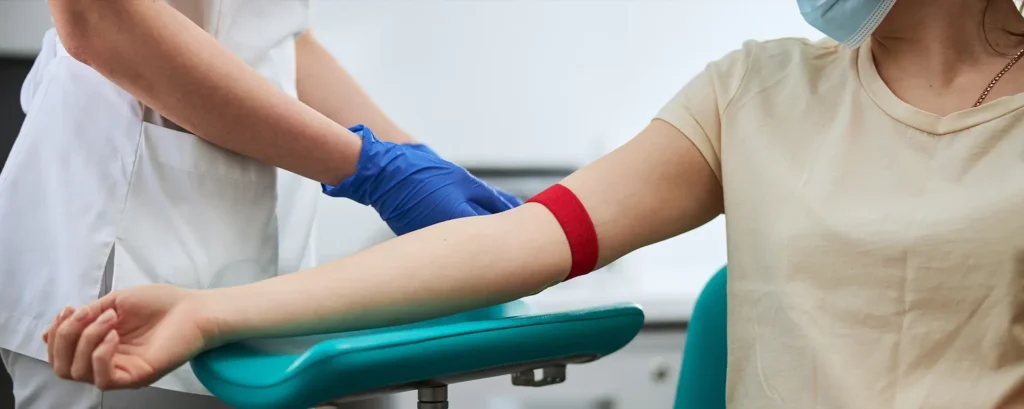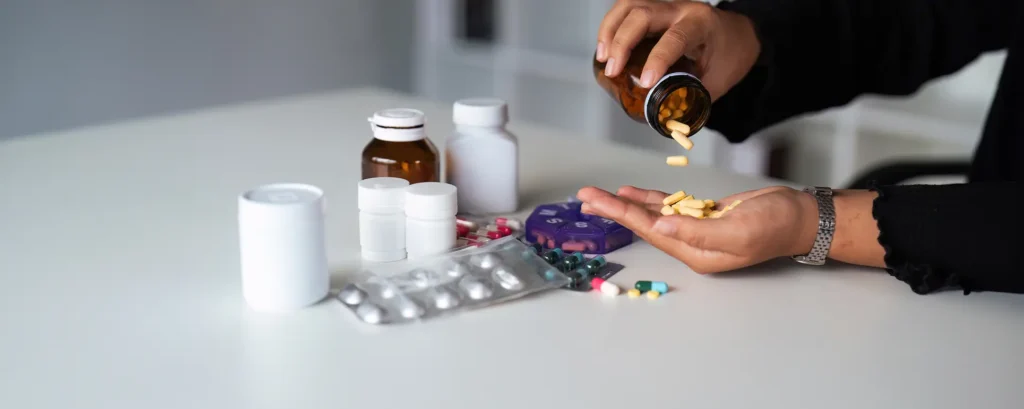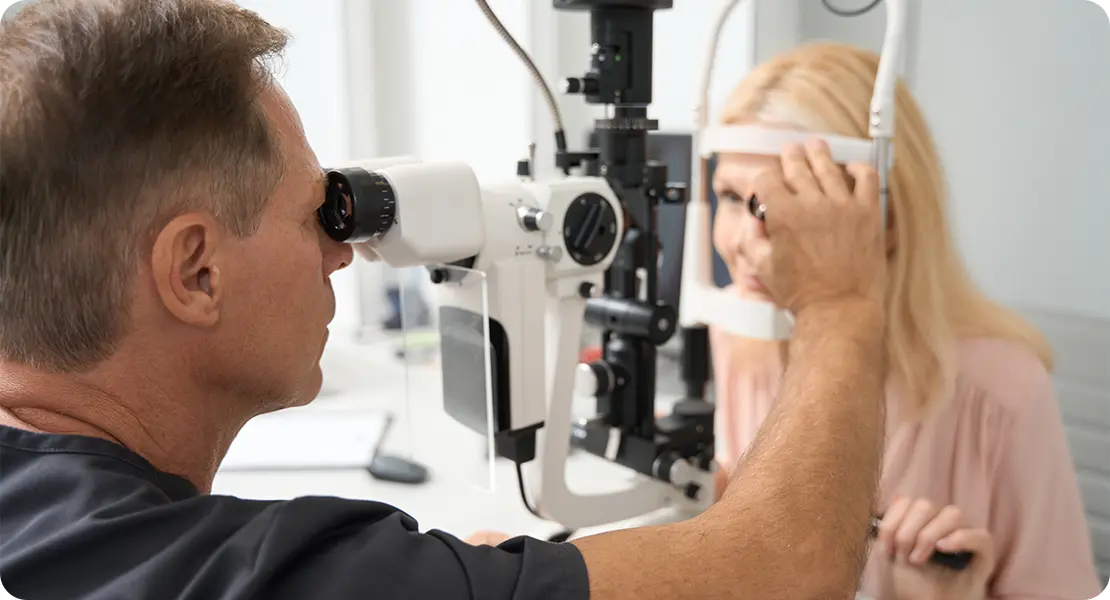If you’ve been told you need cataract surgery and you’re living with hepatitis B or C, it’s natural to have a few extra questions. You might be wondering whether your liver condition will make surgery more complicated or if the medications you’re taking could interact with anaesthetic drugs. The good news? Cataract surgery can absolutely still go ahead in most cases — it just requires a bit more planning behind the scenes.
This article walks you through exactly how surgeons and anaesthetists take your hepatitis diagnosis into account. From pre-operative blood tests and liver function assessments to surgical precautions and postoperative care, we’ll explore what adjustments might be needed to keep things safe and smooth. You’ll also find a helpful FAQ at the end with answers to some of the most common concerns patients have shared.
Let’s get started by understanding how hepatitis may affect your body more broadly, and what that means for eye surgery.
Understanding Hepatitis and Its Systemic Effects
Hepatitis B and C are both viral infections that primarily target the liver. Over time, these infections can lead to chronic inflammation, fibrosis, cirrhosis, and even liver failure in some individuals. But the liver doesn’t just deal with digestion — it plays a crucial role in detoxifying medications, producing blood-clotting factors, and regulating hormones, all of which matter during and after surgery.
If your liver function is mildly affected, you might not even notice any symptoms. But for people with more advanced disease, fatigue, easy bruising, fluid retention, or increased bleeding can all be part of the picture. These factors are important for your cataract surgeon to know, especially when deciding on your anaesthetic plan and postoperative medications.
While hepatitis itself doesn’t directly harm your eyes, the consequences of long-term liver disease — such as altered platelet function or poor wound healing — can influence how your body responds to even a straightforward surgery like cataract removal.
Why Preoperative Blood Tests Are Crucial

Before any cataract surgery, a standard part of preparation is running a few basic blood tests. But if you have hepatitis, this step becomes even more important. Your surgical team may ask for a liver function panel, a full blood count, and clotting studies like PT/INR and APTT. These help assess whether your liver is processing proteins correctly, whether your blood can clot properly, and whether your body is generally in good shape for the procedure.
Low platelet counts or prolonged clotting times, for instance, might prompt your surgeon to take extra care during incisions to avoid bleeding, or to liaise with your hepatologist about optimising your medications in the lead-up to surgery. In some cases, vitamin K or platelet transfusions may be considered in advance to reduce bleeding risk.
The goal of these tests isn’t to disqualify you from surgery — quite the opposite. They’re there to make sure any hidden issues are identified early so you can have the safest possible experience.
Is Local Anaesthesia Still Safe with Hepatitis?
For most people undergoing cataract surgery, local anaesthesia (usually via eye drops and sometimes a small injection around the eye) is the preferred method. This approach avoids the need for general anaesthesia and its associated risks. Fortunately, hepatitis does not generally interfere with local anaesthesia itself.
However, if your liver function is severely impaired, certain sedatives that are metabolised by the liver may need to be avoided or dosed carefully. This is particularly true if you’re particularly anxious and require mild sedation, or if there’s a need for systemic medication to manage blood pressure or discomfort during the procedure.
The anaesthetic team will often check which drugs are safe based on your liver enzymes and current medication list. Communication between your ophthalmologist and your GP or liver specialist becomes key here — it’s all about choosing the safest route that still keeps you comfortable and calm during the procedure.
Medication Interactions: What to Flag with Your Surgeon

If you’re being treated for hepatitis B or C, chances are you’re on one or more medications to manage the condition. For hepatitis B, this might include antiviral drugs like entecavir or tenofovir. For hepatitis C, you may be taking direct-acting antivirals like sofosbuvir or glecaprevir combinations. These drugs don’t directly interfere with cataract surgery, but it’s still important to inform your surgeon about them.
Some antibiotics, anaesthetics, or anti-inflammatory drugs used before or after surgery may have hepatic metabolism, meaning they pass through your liver. If your liver function is reduced, you may need an alternative drug or a lower dose to avoid adverse effects.
For example, common pain relievers like paracetamol (acetaminophen) are processed in the liver and must be used with care. Similarly, anti-inflammatory drops used after cataract surgery may be fine for most, but in a patient with liver sensitivity, extra monitoring is often recommended.
Don’t assume your surgeon or anaesthetist knows your full medication list — bring it with you and go through each item during your preoperative consultation.
Managing Bleeding Risk During Surgery
One of the lesser-known roles of the liver is producing proteins essential for normal blood clotting. In people with advanced hepatitis or cirrhosis, clotting function can be impaired, making even a small eye surgery more prone to bruising or bleeding.
That said, modern cataract surgery is a minimally invasive procedure using a tiny incision (usually around 2.2 mm) and rarely causes significant bleeding. But if your blood clotting markers are off, your surgeon may apply extra pressure during incision placement, minimise tissue handling, or consult your liver team about preoperative correction strategies.
In rare cases, people with severe clotting abnormalities may require plasma or clotting factor infusions before surgery, though this is more common in major surgeries like liver biopsy or abdominal operations.
The key message here is: your bleeding risk is not a deal-breaker, but it must be known in advance and planned around.
Infection Control Precautions: Protecting Both You and the Surgical Team
Hepatitis B and C are bloodborne viruses, and while the risk of transmission during cataract surgery is extremely low, hospitals have strict protocols in place to keep everyone safe. These include sterile instruments, disposable surgical drapes, and personal protective equipment for the team.
Your status may be noted in your chart to ensure appropriate handling of sharp instruments and waste disposal. This isn’t about discrimination — it’s about ensuring universal precautions are taken consistently and respectfully. Many patients feel concerned that their diagnosis will lead to stigma, but in well-run surgical units, your infection status is handled professionally and confidentially.
You should also be reassured that your own infection risk during the surgery is negligible, thanks to high levels of sterilisation and the fact that the eye itself is a relatively isolated part of the body.
What to Expect from Recovery with Hepatitis

The good news is that most people with hepatitis recover from cataract surgery just as well as those without. However, certain nuances need to be considered. For example, wound healing can be slightly delayed in people with advanced liver disease, so close monitoring in the first week or two is important.
If your immune system is suppressed — either due to your hepatitis itself or from medications like steroids or immunosuppressants — there’s also a slightly higher risk of infection. This is why keeping your follow-up appointments and sticking to your post-op drop schedule becomes even more vital.
Some patients report increased fatigue in the first few days after surgery, particularly if their liver condition is active. Take it easy, avoid lifting heavy objects, and don’t rush your return to normal activity — your body needs time to rest and adapt.
Coordination with Your Hepatologist or GP
Cataract surgeons are specialists in the eye, but they rely heavily on input from your other doctors when it comes to systemic health issues. If you’re under a hepatologist, your surgeon may request a quick update on your liver status and ask for clearance if your disease is more advanced.
It’s always helpful to bring a copy of your latest liver blood tests (ALT, AST, ALP, bilirubin, INR) and viral load reports to your pre-assessment. That way, all the clinicians involved can make informed decisions without delay.
In more complex cases, your liver team may even suggest adjusting your medications before or after the operation — for example, temporarily pausing a drug that might impair clotting. This is part of what makes your care feel truly individualised.
Can Cataract Surgery Impact Your Liver?
This is a question that sometimes causes concern. The short answer is: cataract surgery is highly localised to the eye and does not affect the liver directly. However, any surgery — even a small one — can place mild stress on the body, especially if you’re already unwell. If your liver is already under strain, this may temporarily show up as fatigue or changes in blood test results after the procedure.
That said, most people don’t experience any noticeable liver impact from cataract surgery. The body’s response is usually very mild, and unless complications arise, liver function remains stable throughout the process.
So, while it’s good to be mindful and keep an eye on your symptoms, rest assured this is not a surgery that places your liver at significant risk.
FAQs
- Can I still have cataract surgery if I have hepatitis B or C?
Yes, you can still undergo cataract surgery safely if you have hepatitis B or C. These viral infections do not affect the eye directly, and the surgery itself is performed on a very small, localised area with minimal systemic impact. What matters most is that your surgical team is made aware of your hepatitis status so they can take appropriate precautions, particularly around liver function, bleeding risk, and medication interactions. With proper planning and coordination with your GP or hepatologist, the procedure can be carried out just as effectively as in any other patient. - Will cataract surgery make my hepatitis worse?
No, cataract surgery will not worsen your hepatitis. The operation is confined to the eye and doesn’t directly affect the liver or immune system. However, if you have advanced liver disease or active inflammation, your body might take a little longer to recover from the general stress of surgery. This makes it important to get some rest after the procedure and to follow any advice your surgeon or liver specialist gives you. In general, though, cataract surgery is considered low-risk and safe for patients with hepatitis, provided precautions are taken. - Do I need special blood tests before surgery?
Yes, if you have hepatitis, you’ll likely need a few additional blood tests before cataract surgery to check your liver function and clotting ability. These tests may include liver enzymes, bilirubin levels, platelet count, and clotting profiles like INR. The purpose is to ensure that your liver is handling proteins and medications properly and that your blood can clot effectively during and after the procedure. If any values are abnormal, your surgical team may adjust the plan accordingly or consult your liver specialist to reduce any potential risks. - Is it safe to use eye drops if I have liver problems?
Most eye drops used after cataract surgery are safe for people with liver conditions because they act locally on the eye and only a very small amount is absorbed into the bloodstream. That said, if you’re on antiviral therapy or have impaired liver function, it’s important to review all prescribed medications with your doctor or pharmacist. Occasionally, oral medications like antibiotics or painkillers may need to be adjusted for your liver health, but eye drops themselves are rarely a concern in this context. - Should I tell my cataract surgeon I have hepatitis?
Yes, it’s essential that you tell your cataract surgeon if you have hepatitis. This allows them to coordinate with your liver specialist, order the right preoperative tests, and plan the procedure in a way that minimises any risks. It also ensures that the surgical team can take necessary infection control precautions without delay. Your diagnosis will be handled confidentially and respectfully, and being transparent helps protect both your health and the safety of everyone involved in your care. - What if my platelet count is low from liver disease?
A low platelet count, which is common in people with chronic liver disease, can increase the risk of bleeding during any surgery — including cataract procedures. Fortunately, modern cataract surgery is minimally invasive and usually involves little to no bleeding. Still, your surgeon will want to know about your platelet levels in advance. If needed, they may delay surgery briefly to allow for platelet-boosting treatments, or coordinate with your hepatologist for additional support to ensure the procedure remains low risk. - Can I infect others during surgery if I have hepatitis?
No, you won’t pose a risk to other patients during cataract surgery. NHS and private surgical centres follow strict infection control protocols designed to protect both patients and staff from bloodborne viruses like hepatitis B and C. These include the use of sterile disposable equipment, personal protective gear, and careful handling of any sharps. Your infection status is kept confidential, and universal precautions are taken for every patient, regardless of diagnosis. So while your care team will be aware, you won’t be treated differently in any visible way. - Will I need to stop my hepatitis medication before surgery?
In most cases, you won’t need to stop your hepatitis medication before cataract surgery. However, your surgeon and liver specialist may review your prescriptions to check for any potential interactions with anaesthetic agents or post-op medications. If your liver is under stress, they might suggest temporary adjustments, such as changing a painkiller or delaying certain supplements. Always bring a full list of your current medications to your pre-op appointment so your medical team can make informed, tailored decisions. - How long does recovery take if I have hepatitis?
Recovery from cataract surgery is typically quick, and this is true even for people with hepatitis. However, if you have more advanced liver disease, your overall energy levels and healing speed might be a bit slower. Your surgeon may want to see you more frequently during the first couple of weeks to ensure the eye is healing well and to catch any signs of inflammation or infection early. Most patients with hepatitis are able to return to normal activities within a week or two, provided they rest and follow their eye drop schedule diligently. - Is general anaesthesia risky for someone with hepatitis?
General anaesthesia can carry more risks in people with impaired liver function, which is why it’s rarely used for cataract surgery. Instead, nearly all cataract procedures are done using local anaesthesia with or without mild sedation. If deeper sedation or general anaesthesia is ever required — for example, due to severe anxiety or a medical condition that prevents lying still — the anaesthetist will carefully choose drugs that are safe for your liver. With the right preparation and monitoring, even patients with moderate liver disease can safely undergo surgery.
Final Thoughts
Living with hepatitis doesn’t disqualify you from clear vision. With the right planning, communication, and surgical precautions, cataract surgery can be carried out safely and with excellent outcomes — even if your liver function isn’t perfect. The most important thing is to be open with your care team about your medical history and medications so they can tailor your treatment to your needs.
At London Cataract Centre, we routinely work with patients who have coexisting medical conditions, including hepatitis. Our team liaises closely with your GP or liver specialist to make sure everything is accounted for — from the moment you walk in, to the day your vision clears.
References
- Tahir, M.A., Cheema, A. and Tareen, S. (2015) ‘Frequency of Hepatitis‑B and C in patients undergoing cataract surgery at a tertiary care centre’, Pakistan Journal of Medical Sciences, 31(4), pp. 895–898. Available at: https://www.ncbi.nlm.nih.gov/pmc/articles/PMC4590375/
- Naeem, S.S., Siddiqui, E.U., Kazi, A.N. et al. (2012) ‘Prevalence of Hepatitis B and Hepatitis C among preoperative cataract patients in Karachi’, BMC Research Notes, 5, p. 492. Available at: https://bmcresnotes.biomedcentral.com/articles/10.1186/1756-0500-5-492
- Tripathi, D., Giri, S. and Brown, R. (2017) ‘Perioperative management of patients with liver cirrhosis undergoing non-hepatic surgery’, World Journal of Gastroenterology, 23(45), pp. 8267–8275. Available at: https://www.ncbi.nlm.nih.gov/pmc/articles/PMC5398291/
Pandey, C.K., Karna, S.T., Tandon, M. and Pandey, V.K. (2022) ‘Perioperative management of patients with liver disease for non-hepatic surgery’, Indian Journal of Anaesthesia, 66(3), pp. 195–203. Available at: https://www.ncbi.nlm.nih.gov/pmc/articles/PMC8886011/

